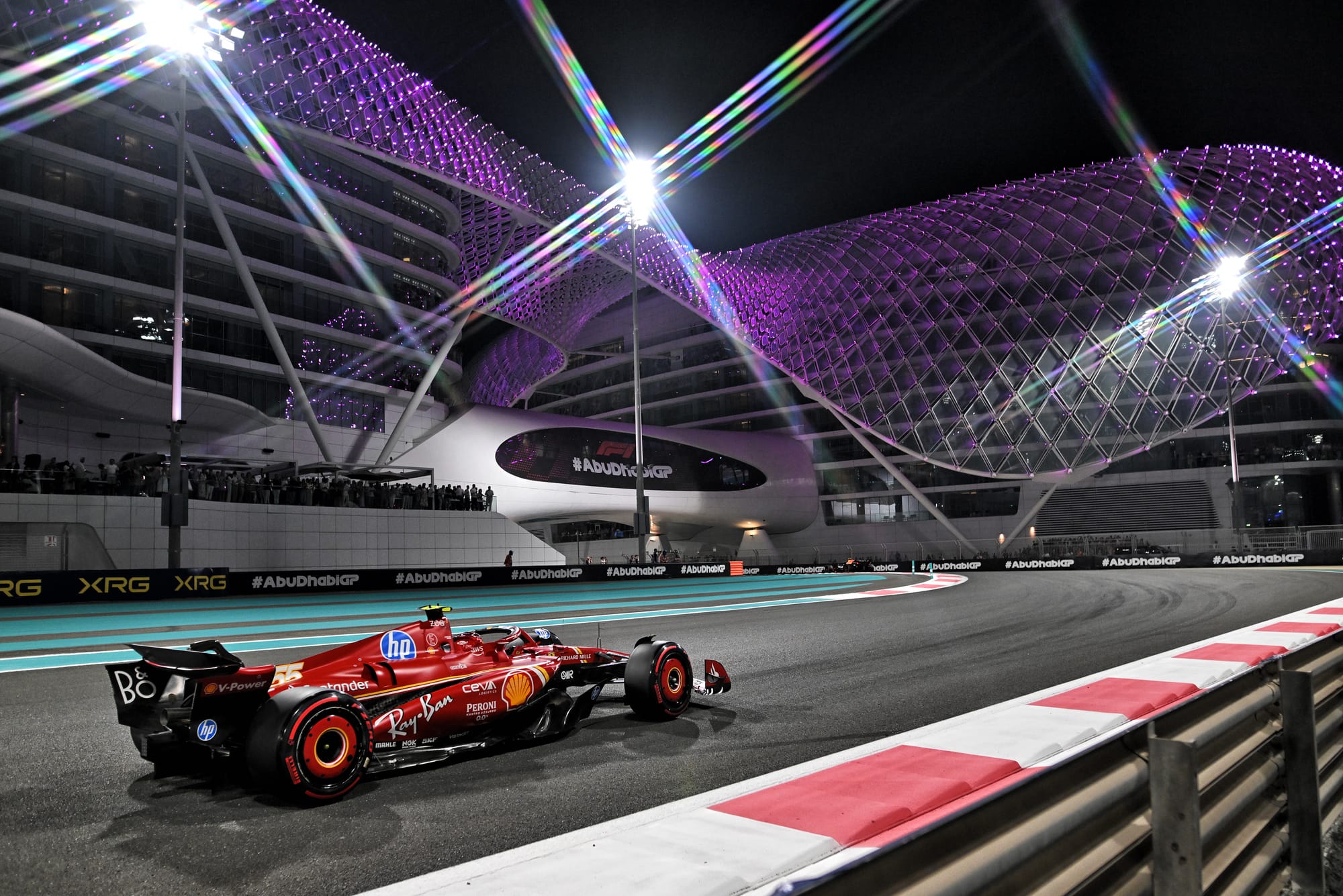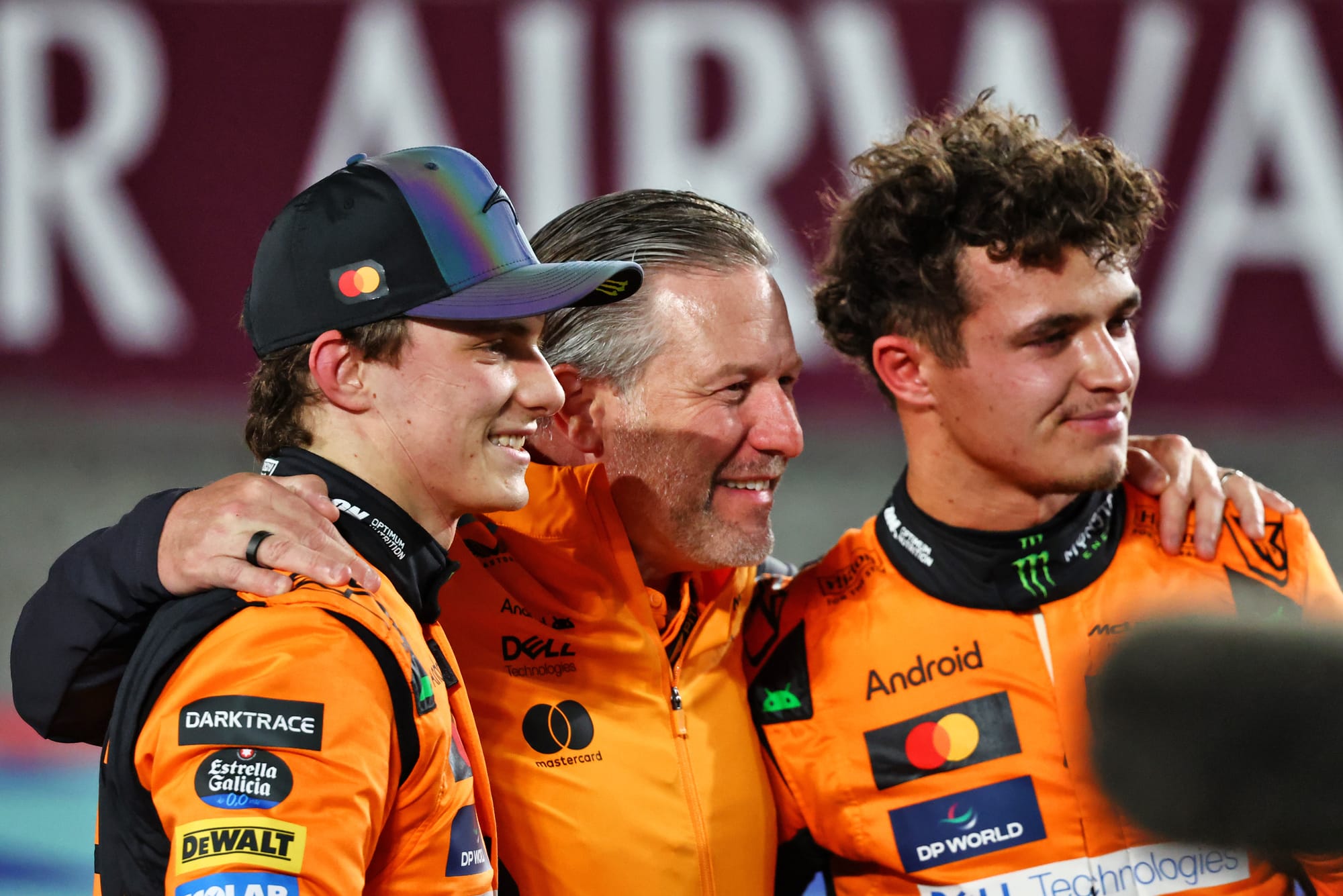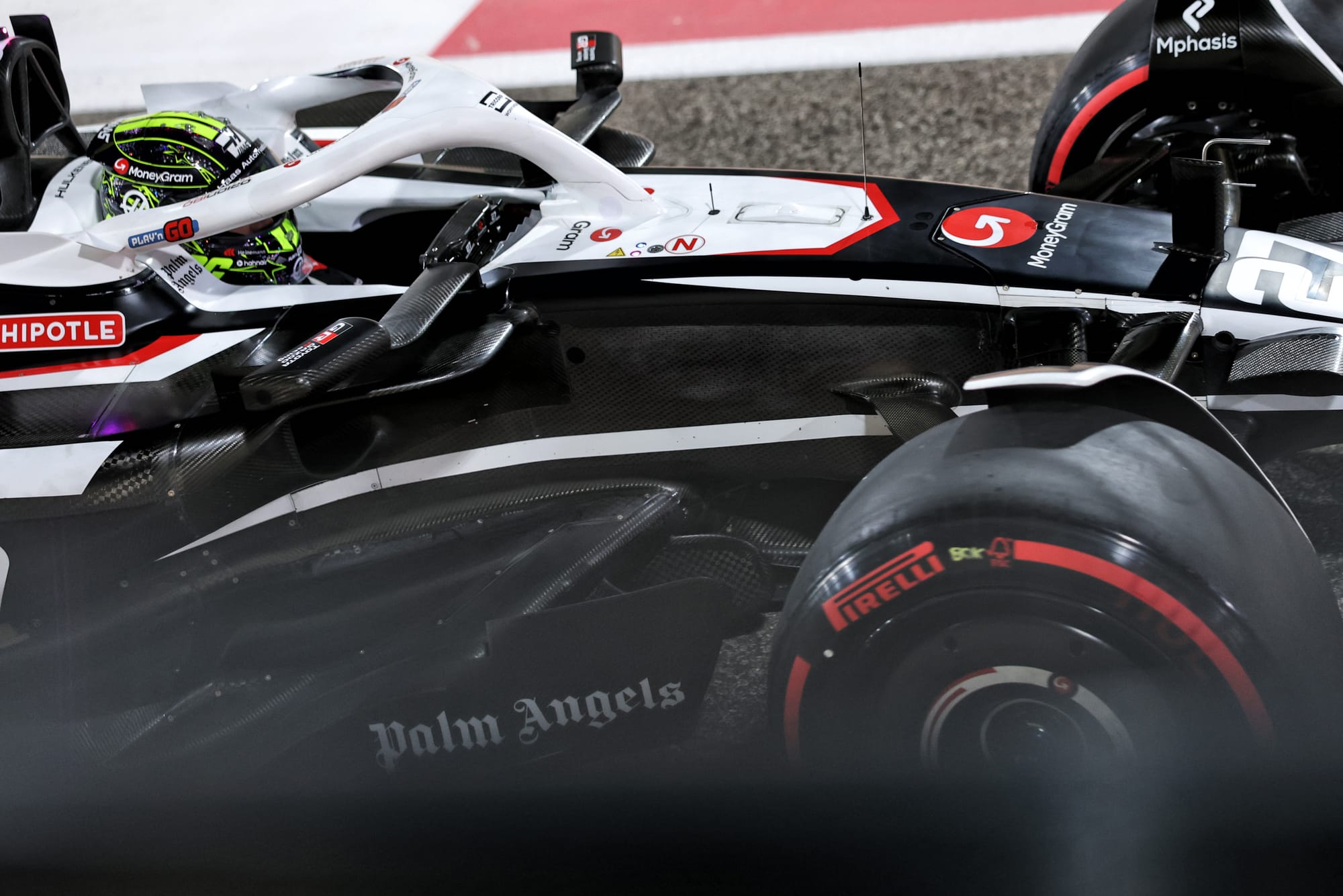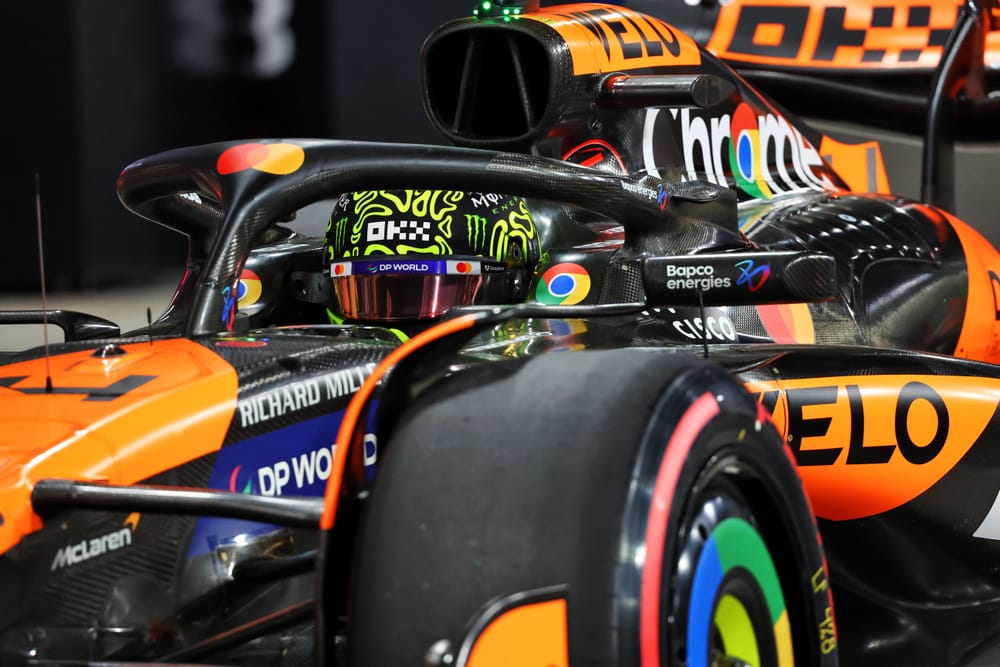Up Next

Whatever happens on Sunday, it will be a milestone achievement for McLaren or Ferrari which are both looking to end long waits for the constructors’ championship.
After a difficult start to the year, both teams have developed significantly to overcome Red Bull - with a bit of help from a disappearing Sergio Perez at Red Bull - to have fantastic second halves of the season. McLaren entered Abu Dhabi 21 points clear of Ferrari.
And of course, there was no shortage of drama in qualifying, as McLaren locked out the front row ahead of Carlos Sainz while Charles Leclerc will start at the back thanks to a lap being deleted in qualifying and a 10-place penalty for a battery change.
David Coulthard and Mika Hakkinen gave McLaren its last constructors' title in 1998, its eighth title putting it third all time, and Ferrari’s last success came 10 years later in 2008 thanks to Felipe Massa and Kimi Raikkonen. It was Ferrari’s 16th title, putting it seven clear of Williams and eight clear of McLaren.
Let’s take a look at some key numbers in a bid to ascertain who could win the constructors’ title, and how.
How McLaren can win

Charles Leclerc’s 10-place grid penalty and McLaren’s form in the Abu Dhabi weekend leading up to the race makes it a clear favourite to seal the title.
McLaren has a 21-point lead. So if either of McLaren’s drivers wins the race, it will win the constructors' championship regardless of where the Ferrari drivers finish.
The maximum score available is 44, so that gives us a handy benchmark to work out more of what McLaren needs to do.
The head-to-head right now:
1 McLaren 640
2 Ferrari 619 (-21)
Assuming Ferrari makes a miracle recovery and scores the maximum 44 points available (first and second with fastest lap bonus point), that would take its total to 663 points. McLaren sits on 640 as it stands, so whatever happens on Sunday, a 24-point score would seal the title.
It can do this by finishing with a third and fifth (15 +10). Any lower combination wouldn’t be enough to secure the title.
Norris said qualifying was a "perfect day for us, probably a bit more difficult than we would have liked", but it was "just how we wanted to end today".
"We've got to beat Ferrari," he added, "but we want to do it in style."
What Ferrari needs to do

Ferrari must score a minimum of 21 points, and even then it would be relying on a tie-breaker (see below), so 22 would be a safer bet.
So even if McLaren score zero points, which is very unlikely given its front-row lockout, Ferrari needs to finish first (25), second and eighth (18 + 4), third and sixth (15 + 8), third and seventh with the fastest lap (15 + 6 + 1) or fourth and fifth (12 +10) to reach or surpass that 22-point marker.
It knows it has a huge task to even have a chance to beat McLaren, but neither driver has given up.
"We are not making our life any easier, however, it motivates me to do something very special tomorrow," said Leclerc.
"My goal remains the same: it’s to win the constructors’ championship. And I still believe in it as much as I did yesterday, even though on paper obviously it’s going to be hard."
Tie break rules

If there is a tie-break, the result is decided by the highest number of wins. If there is still a tie, it’s decided on second places, then thirds and so on.
If Ferrari wins, it will outscore McLaren with six wins to McLaren’s five. If Ferrari does not win, McLaren has a much higher number of second places and therefore would win in any tie-break.
What about the rest of the constructors’ fight?

Fighting for, say, sixth isn’t what any F1 team really wants to be doing, but unlike in many other sports, there’s a massive financial benefit between every position in the constructors' championship - even last and second to last - as the constructors’ helps to decide how much each team is paid in prize money.
It’s one of the reason’s F1’s notorious ‘midfield’ is so hotly contested, as there's no dead-rubber races at all.
Standings (in brackets is the gap to each position)
1 McLaren 640
2 Ferrari 619 (-21)
3 Red Bull 581 (-38)
4 Mercedes 446 (-135)
5 Aston Martin 92 (-354)
6 Alpine 59 (-33)
7 Haas 52 (-7)
8 RB 46 (-6)
9 Williams 17 (-29)
10 Sauber 4 (-13)
As you can see, Red Bull can mathematically catch Ferrari but would need a near-maximum score, which is unlikely given their starting positions of fifth and 10th.
Mercedes can’t move, and Aston Martin are very likely to keep fifth although it isn’t mathematically safe. So the real headline battles now are lower down.
Alpine’s incredible double podium in Brazil three races ago launched it from ninth to sixth in the standings, but even that wouldn’t be enough to jump Aston, it would need to win.
Points available
1 25
2 18
3 15
4 12
5 10
6 8
7 6
8 4
9 2
10 1
Fastest lap 1
So rather than looking forwards at Aston, Alpine needs to be looking back at Haas, which took an amazing fourth on the grid with Nico Hulkenberg. Luckily Pierre Gasly was only two places behind.
Haas is just seven points back, and the deciding factor may well be if Kevin Magnussen can trouble the top 10 from 14th. It would be a big ask for Alpine's debutante Jack Doohan from near the back of the pack.
RB is still very much in that fight as well, six behind Haas and 13 behind Alpine, although both cars start outside the top 10.
Williams and Sauber appear set in their positions. Mathematically there’s a chance for either to gain places but their form doesn’t make that realistic, and both Williams drivers have grid penalties.




